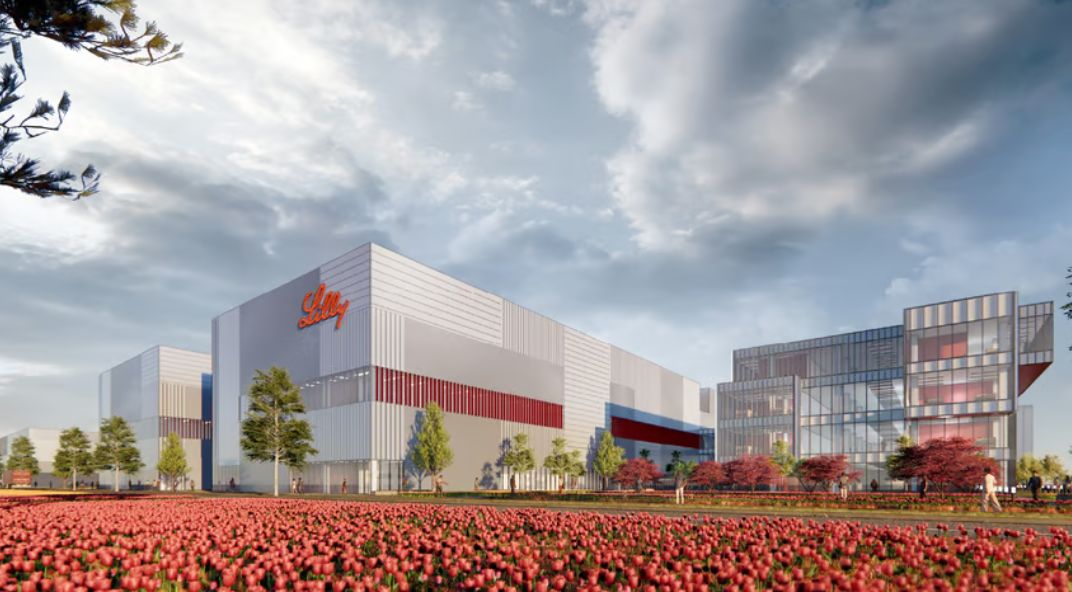Eli Lilly’s $3B Leiden Bio Science Park Facility
American pharma leader Eli Lilly and Company is investing $3 billion (approx. €2.6 billion) to build a major new manufacturing facility in Katwijk, connected to the Leiden Bio Science Park ecosystem. The site will focus on producing oral medicines, including Lilly’s next-generation oral GLP-1 therapy, alongside treatments in cardiometabolic health, neuroscience, oncology, and immunology.
The facility will incorporate highly advanced, automated manufacturing technologies designed to improve efficiency, resilience, and product quality - reflecting Lilly’s global strategy to significantly expand its capacity for innovative medicines.
Construction is planned to begin in 2026, following the company’s formal announcement in late 2025. The investment is part of Lilly’s broader global expansion, designed to meet rapidly increasing demand for its pipeline of oral and biologic medicines. While Lilly has not yet released a confirmed production start date, the new plant is intended to play a central role in strengthening its European supply network once operational.
The project will create around 500 high-skilled manufacturing jobs and approximately 1,500 construction roles, representing one of the largest life sciences investments in Dutch history. Lilly has stated that the Netherlands was chosen for its exceptional talent pool, multilingual workforce, and proximity to key European regulatory bodies, a testament to the strength of the Dutch life sciences ecosystem.
Tiofarma’s Future-Proof Laboratory Investment
Dutch CDMO Tiofarma, based in Oud-Beijerland, is strengthening its pharmaceutical manufacturing infrastructure with a new investment in a future-ready Quality Control (QC) laboratory. This move aligns with the company’s long-term strategy to expand analytical and GMP capabilities in line with rising demand for its specialised formulations.
Although Tiofarma has not publicly released timeline details for the new laboratory, the investment follows a series of facility upgrades in recent years aimed at expanding capacity and modernising operations. The new QC lab is designed to support enhanced analytical technologies, compliance with evolving regulatory standards, and greater operational sustainability.
By investing in modern QC capabilities, Tiofarma reinforces its role as a reliable pharmaceutical manufacturing partner, ensuring consistent quality for complex products such as creams, ointments, and nasal sprays. The expansion strengthens Tiofarma’s ability to meet future market requirements and maintain its position in both Dutch and European supply chains.




